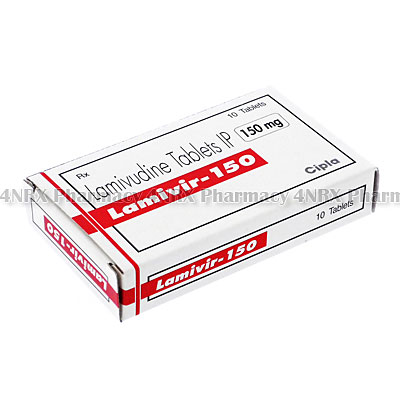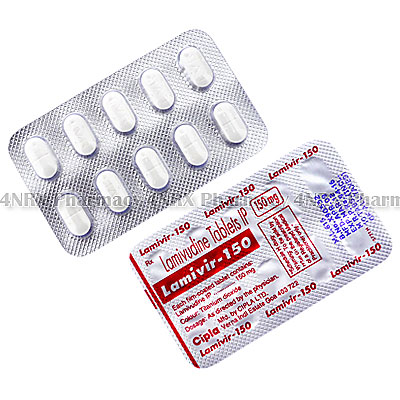 |
Home  HIV Treatments HIV Treatments  Lamivir (Lamivudine) Lamivir (Lamivudine) |
|
|||||||||
|
Lamivir (Lamivudine)
What is Lamivir (Lamivudine) used for? Lamivir (Lamivudine) is used together with other drugs as a control measure for HIV infections. It can also help to reduce the risk of health problems arising from HIV such as infections. This drug is in a class of medications called nucleoside reverse transcriptase inhibitors, or NRTIs. It is an antiviral drug which helps to prevent the cells of the virus from multiplying. A low strength version containing the same active ingredient is also used to treat hepatitis B in patients without HIV. How should I use Lamivir (Lamivudine)? Lamivir (Lamivudine) tablets are taken orally. Adult patients are sometimes directed to take this drug twice per day, at 12 hour intervals. You should never skip any doses or stop taking this drug, as this may make your condition more difficult to treat. What are the side effects of Lamivir (Lamivudine)? Side effects of Lamivir (Lamivudine) include:
If you experience any serious side effects, you should consult your physician immediately. Please Note In rare cases, this drug may increase the risk of a heart attack. You should discuss this with your physician before you begin taking this medication. This drug may in rare cases cause a serious condition that affects the liver known as lactic acidosis. Symptoms of this include discoloration of urine, bleeding or flu symptoms. Seek immediate medical attention if this occurs. Never change the brand or type of tablets without first informing your physician. Strictly follow all instructions provided to you by your physician or pharmacist while using Lamivir (Lamivudine). Optimum and safe dosage can differ based on the patient and the condition being treated. As this medication may be unsafe for certain patients, it is essential you always inform your physician if you are pregnant or breastfeeding, as well as if you have any allergies, other illnesses, or ongoing health conditions, and if you are taking any other form of medication, supplements, or herbal products. Immediately seek emergency medical care if you have any allergic or hypersensitive reaction. Common signs of a reaction include hives, swelling, skin rashes, chest pains, as well as trouble breathing or swallowing. 

|
|||||||||||||||||